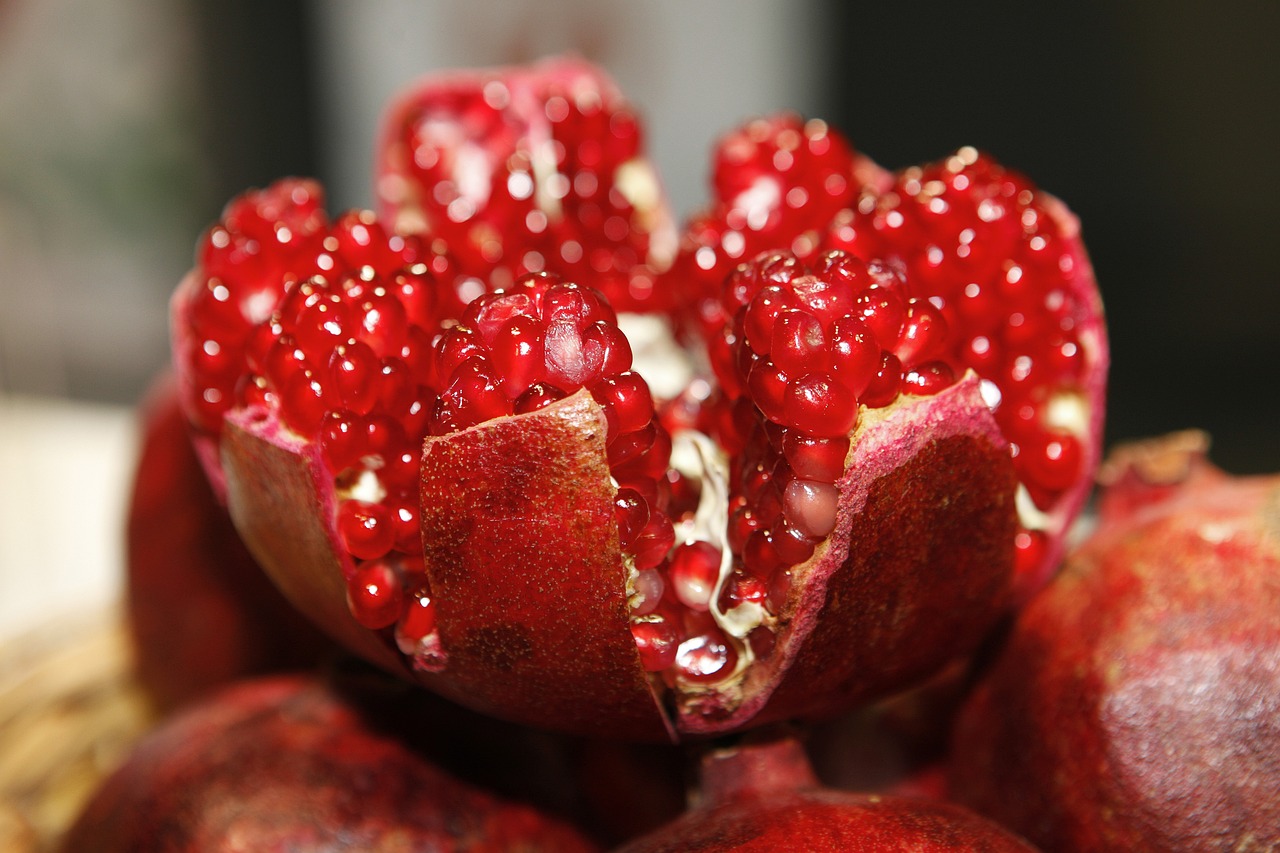Pomegranate: benefits and harms

January 10, 2024
Pomegranate has so many antioxidant substances that are a protection for the body from cell damage, which oxidative stress causes, but also those that can affect the cardiovascular system due to cholesterol and diabetes. It contains vitamins, minerals and antioxidant substances, with which it is possible to fight cellular aging, caused by the damaging action of free radicals. Scientific research has linked these properties to the phenolic component, with which the gastric mucosal barrier becomes stronger and allows the cardiovascular system to function properly.
Pomegranate origins and benefits
The origins of pomegranate are Persian because it was imported by the Romans to Italy during the Punic Wars; hence the botanical name Punica Granatum. Historically, the bark was used for its astringent and disinfectant, tonic and antihemorrhagic properties. Today, however, its juice is used to protect the heart and blood vessels from arteriosclerosis and damage caused by diseases such as cholesterol, diabetes; but also to combat premature aging of cells, caused by oxidative stress. It contains vitamins A, B complex, vit. C and of tannins with antioxidant, astringent, tonic and refreshing properties, which make the oxidative process leading toatherosclerosis. It also has lots of flavonoids. Cholesterol and blood sugar levels with pomegranate are kept under control because it has phenols within it that inhibit the alpha-amylase enzyme, such as ellagic acid, gallic acid, active ingredients that have anti-inflammatory, anti-allergic, vasoprotective and gastroprotective properties, slow down the digestion of starch contained in foods such as bread, pasta, potatoes.
Oxidative stress and atherosclerosis
We often have a poor lifestyle, expose ourselves to UVA and UVB rays, air pollution, toxic substances (such as solvents, heavy metals, pesticides, detergents), our diet is deficient in minerals and vitamins, and too much mental and physical fatigue are factors that make the body weak and “age” it prematurely. They are, in fact, the cause of oxidative stress and the increase in our body of free radicals that are neutralized by antioxidant substances, but if there are too many of them, they are harmful. In this case, tissues of the skin (wrinkles, loss of elasticity, skin spots), of the eyes (cataracts, macular degeneration), of the brain (Alzheimer’s, brain degeneration), arthritis occurs, and muscles degenerate as well as the tissues of the blood vessels, and this can cause atherosclerosis. Atherosclerosis is a tissue hardening, or sclerosis, of the arterial wall that occurs as we age because fibrous connective tissue accumulates at the expense of the elastic part.




